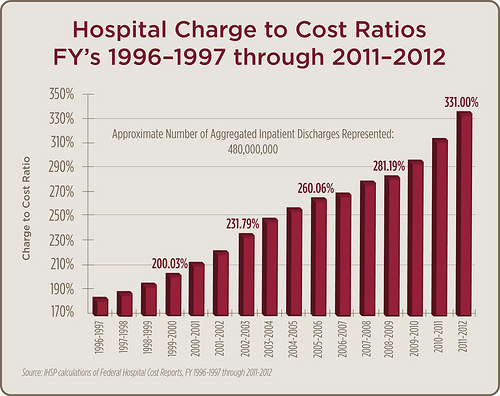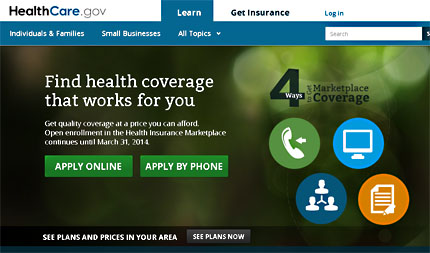
<a href="http://www.shutterstock.com/pic-104336624/stock-photo-hospital-hallway-emergency-room.html?src=pd-photo-84258409-MkIAOoIkEvZSz0IzXkc7Wg-4">VILevi</a>/Shutterstock
The United States has long been known to have one of the most expensive hospital systems in the world, and now a new study indicates that hospitals are overcharging patients for medical services.
According to the study published Monday by National Nurses United, the largest nurses’ organization in the United States, the price of many services has skyrocketed since the mid-’90s. Many hospitals have set charges at 10 times their cost. The 100 most expensive hospitals in the country, for example, in 2011 charged 765 percent of their costs, or $765 for every $100 of total costs.

Charles Idelson, a spokesman for NNU, says that even insured patients, whose insurance providers will offset some of the costs, will be affected by the price hikes. “The skyrocketing prices make premiums, co-pays and deductibles go up,” Idelson says. Another recent study, by the Commonwealth Fund, found that “high deductibles and cost-sharing, along with no limits on out-of-pocket costs” may explain why even insured people struggle to afford health care.
“Lets be clear: This is price gouging,” says Charles Idelson, a spokesman for NNU. “And the hospitals are doing it because they want to increase their profits.” As hospital prices hit record highs so did profits: In 2011 hospitals made $53 billion in profits, compared to $34.3 billion in 2009, according to the NNU data.
The situation is even worse for the uninsured, who have to cough up the full medical bill. “Our nurses all the time see patients skipping medical care that is necessary for them because they can’t afford the high cost of what they’re being charged” says Idelson. The Commonwealth study found that in 2013 more than one-third of US adults decided to forgo recommended care because of costs.
The high cost of health care got renewed attention at the beginning of the new year when a 20-year-old posted the bill for his appendectomy on Reddit. The total cost after insurance was more than $11,000.
The National Nurses United study also found that excessive costs is worst at private and for-profit hospitals, which, according to the American Hospital Association, account for the vast majority of hospitals in the United States. In contrast, government-run hospitals exercised more restraint in their pricing. “Public oversight and regulation seems to help constrain excessive pricing,” says the study.













